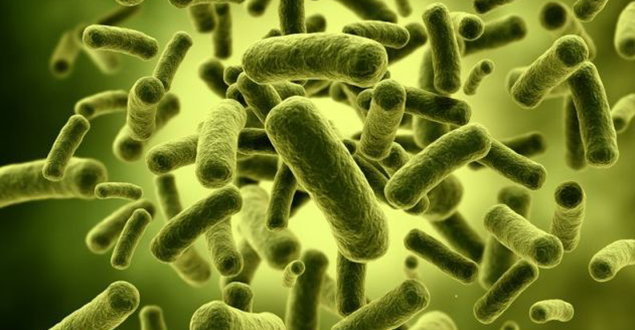

 Back to Suggested Publications
Back to Suggested Publications

The article we suggest this week has been published recently on the Journal of tanslational medicine: "Microbiota and neurologic diseases: potential effects of probiotics".
SUMMARY:
In recent years, the gut microbiota have emerged as a topic of great interest in medical research. Probiotics exert microbiological and nutritional functions, they play an important role in regulating the intestinal transit and reinforcing the gut barrier and in regulating both the innate and adaptive immune systems; they also show anti-inflammatory, anti-tumourigenic and pathogen-exclusion properties, although their exact mode of action remains uncertain.
Studies have shown how dysbiosis is associated with gastrointestinal and extra-gastrointestinal diseases. Moreover, recent investigations have also advocated a possible role for microbiota in the pathogenesis of several brain disorders, evaluated through the concept of the “microbiota-gut-brain axis”. The main aims of this review were to analyze the relationship between the gut microbiota and brain disorders, and to evaluate the current evidence for the use of probiotics in neurologic conditions.
The gut-brain axis exchanges regulatory signals through the autonomic nervous system, the hypothalamus–pituitary–adrenal axis, and the vagus nerv.
The gut microbiome undergoes dramatic dynamic changes during growth, especially throughout infancy and childhood. Adverse changes in the microbiota may cause alterations in neural networks, affecting general and mental health, increasing the risk of neurodevelopmental and other brain disorders later in life.
The alteration of microbiota-gut-brain axis interactions has been advocated as a possible cause of some brain diseases, including Autism Spectrum Disorder (ASD), Parkinson’s disease, multiple sclerosis and mood disorders. However, there is still little evidence regarding the underlying mechanisms responsible, and there is no consensus on the importance of intestinal dysbiosis in the pathogenesis of neurologic diseases.
To date, there are neither guidelines, nor clear indications for the use of probiotics to prevent or treat paediatric neurologic diseases. The current evidence on these subjects is poor and partial. Most of the studies are based on preclinical research in animals, which evidenced neuroprotective effects, and improvement in psychiatric disorder-related behavior and memory abilities.
Clinical trials performed on adults appear to confirm the results achieved in animal studies, suggesting a potential role for probiotics in the treatment of several neurologic diseases.
Only a few clinical studies about the use of probiotic strains for paediatric neurologic diseases have been published, and the majority involved children with ASD. They evidenced how the probiotic supplementation could improve school records and attitude toward food, disruptive antisocial behaviours, anxiety and communication problems.
The authors highlighted the several limitations of the studies reported and concluded that the potential usefulness of probiotics, in the treatment of neurologic diseases, as a routine additive therapy, raises some needs: the necessity of performing well-designed, randomized, controlled clinical trials to identify the appropriate strain, dose and timing for probiotic intervention and the necessity of a deeper evaluation of probiotics safety and tolerability.
AUTHORS: Giulia Umbrello and Susanna Esposito